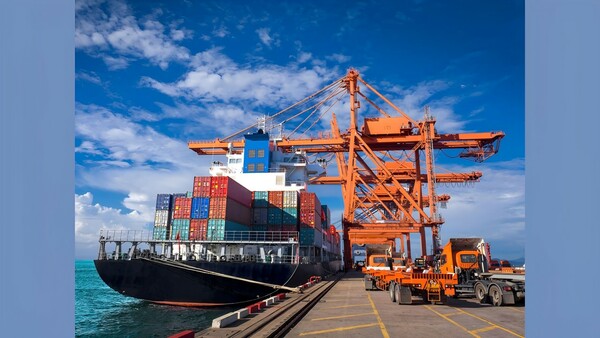Notifications
ALL BUSINESS
COMIDA
DIRECTORIES
ENTERTAINMENT
FINER THINGS
HEALTH
MARKETPLACE
MEMBER's ONLY
MONEY MATTER$
MOTIVATIONAL
NEWS & WEATHER
TECHNOLOGIA
TV NETWORKS
VIDEOS
VOTE USA 2026/2028
INVESTOR RELATIONS
DEV FOR 2025 / 2026
ALL BUSINESS
COMIDA
DIRECTORIES
ENTERTAINMENT
FINER THINGS
HEALTH
MARKETPLACE
MEMBER's ONLY
MONEY MATTER$
MOTIVATIONAL
NEWS & WEATHER
TECHNOLOGIA
TV NETWORKS
VIDEOS
VOTE USA 2026/2028
INVESTOR RELATIONS
DEV FOR 2025 / 2026
 M International Shipping & Trading Canada Inc. -
November 29, 2024 -
Business -
Commercial Ship Management Services
-
145 views -
0 Comments -
0 Likes -
0 Reviews
M International Shipping & Trading Canada Inc. -
November 29, 2024 -
Business -
Commercial Ship Management Services
-
145 views -
0 Comments -
0 Likes -
0 Reviews

The maritime industry is undergoing a significant transformation, especially in Ontario, where companies are embracing innovative practices and technologies. The focus on efficiency and sustainability is reshaping the way Commercial Ship Management services operate. This article explores the latest advancements and how Ontario-based companies are leading the charge.
One of the most notable trends in Commercial Ship Management services is the adoption of digital tools. Companies in Ontario are increasingly using digital platforms for ship and cargo tracking. These technologies provide real-time updates, allowing for better decision-making and improved operational efficiency. For example, advanced tracking systems help manage logistics by optimizing routes and reducing delays. This not only enhances customer satisfaction but also minimizes fuel consumption, contributing to a greener environment.
The maritime sector generates vast amounts of data. Ontario companies are harnessing this data through big data analytics. By analyzing patterns and trends, they can forecast demand, optimize sailing routes, and reduce operational costs. This data-driven approach also helps in identifying potential risks and improving safety measures. As a result, companies can make informed decisions that enhance their overall performance.
Automation is another game-changer in the shipping industry. Ontario ports are increasingly implementing automated systems for cargo handling. These systems reduce human error and increase efficiency. For instance, automated cranes and robotic loaders speed up the loading and unloading processes, minimizing waiting times for vessels. This not only enhances productivity but also reduces emissions, aligning with the industry's push for sustainability.
Sustainability is a key focus in the maritime industry. Ontario-based Commercial Ship Management services are adopting eco-friendly practices to minimize their environmental impact. Companies are exploring alternative fuels, such as liquefied natural gas (LNG) and biofuels, to reduce reliance on fossil fuels. Additionally, advancements in ship design and hull coatings are being implemented to enhance energy efficiency and decrease pollutant emissions.
The concept of autonomous ships is gaining traction in Ontario. These vessels utilize advanced sensors and algorithms to navigate without human intervention. This innovation promises to improve safety by reducing the likelihood of collisions and optimizing fuel consumption. As the technology matures, we can expect to see more autonomous vessels operating in Ontario's waters, further enhancing the efficiency of Commercial Ship Management services.
Collaboration among industry stakeholders is crucial for driving innovation. Ontario's maritime companies are increasingly working together to share knowledge and best practices. This collaborative approach fosters a culture of innovation, enabling companies to stay ahead of industry trends and challenges. By pooling resources and expertise, they can develop solutions that benefit the entire sector.
Innovations in Commercial Ship Management services are transforming the maritime industry in Ontario. By embracing digital tools, big data analytics, automation, and sustainable practices, companies are enhancing efficiency and reducing their environmental impact. As the industry continues to evolve, Ontario stands at the forefront of these advancements, setting a benchmark for others to follow. Embracing these innovations not only improves operational performance but also contributes to a more sustainable future for the maritime sector.